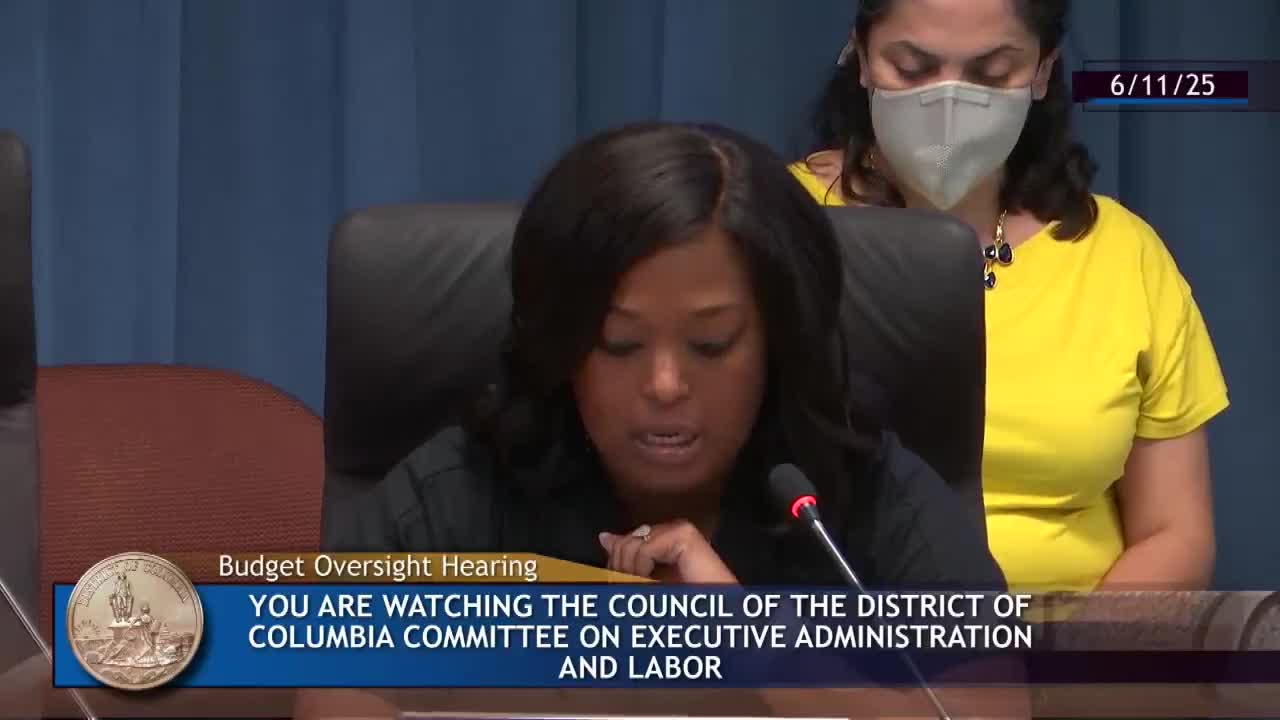
This article was created by AI using a video recording of the meeting. It summarizes the key points discussed, but for full details and context, please refer to the video of the full meeting. Link to Full Meeting
Councilmember Louis George opened the discussion by expressing gratitude for the Department of Employment Services (DOES) and its efforts to assist constituents navigating the complexities of unemployment and economic hardship. He highlighted the importance of workforce investments in the fiscal year 2026 budget, emphasizing that such investments are crucial for the future of the district.
However, the conversation quickly shifted to the contentious topic of proposed cuts to the UPL program. George voiced deep concerns shared by many Ward 4 residents regarding reductions in paid leave benefits. He argued that universal paid leave is essential for improving health outcomes and ensuring economic stability during significant life events, such as welcoming a new child or caring for an ill family member. The proposed budget cuts, he warned, would not only reduce the amount of leave available but also diminish the maximum weekly benefit from $1,153 to $1,000, potentially exacerbating economic insecurity for families who rely on this support.
The councilmember pressed for clarity on the rationale behind these cuts, questioning how reducing both benefits and revenue could lead to any real savings. The response from DOES officials acknowledged that while the changes would indeed decrease revenue, the intention was to align the fund's income with its projected expenditures. However, this approach raised alarms about the long-term sustainability of the program, especially given that many residents face barriers in accessing the benefits due to documentation issues with medical providers.
As the hearing progressed, the discussion delved into the implications of reducing the maximum duration of benefits for caregiving and medical leave. George pointed out that such reductions could disproportionately affect low-income families and communities of color, who are already vulnerable to economic instability. He urged the department to examine the potential impacts of these changes on various demographic groups, particularly the aging population.
The meeting concluded with a call for further analysis on how these proposed changes might affect the most vulnerable residents of the district. As the budget deliberations continue, the future of the UPL program remains uncertain, with advocates and council members alike pushing for a balanced approach that prioritizes the needs of families while ensuring the program's financial health. The outcome of these discussions will undoubtedly shape the economic landscape for many in the District of Columbia in the years to come.
Converted from District of Columbia (Executive Administration and Labor) - Committee on Executive Administration & Labor, Budget Oversight Hearing, Anita Bonds, Chairperson - Jun 11, 2025 meeting on June 11, 2025
Link to Full Meeting
Comments
View full meeting
This article is based on a recent meeting—watch the full video and explore the complete transcript for deeper insights into the discussion.
View full meeting